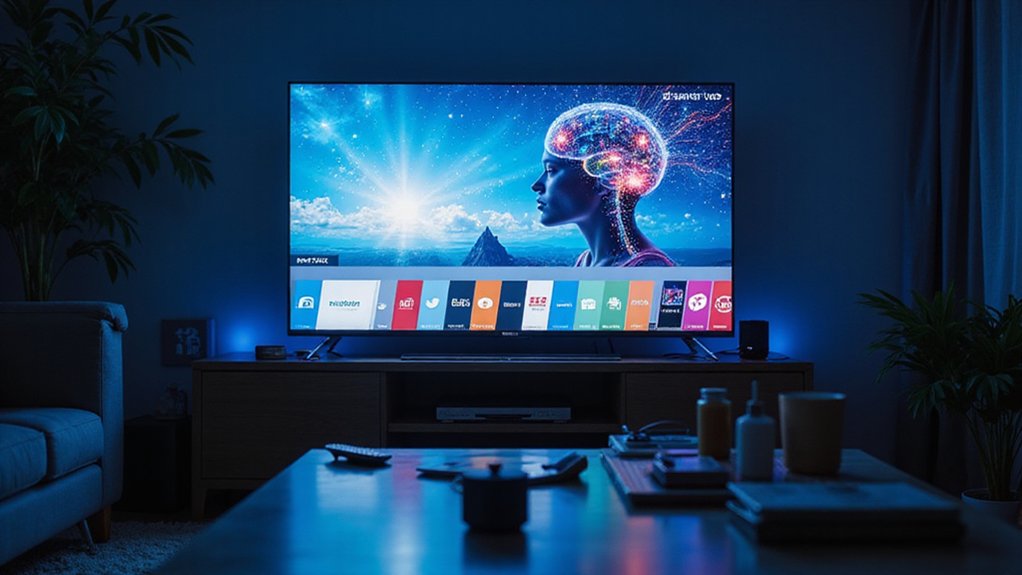LG has partnered with Zenapse to introduce ZenVision, an AI system that analyzes viewers’ emotional responses to TV content. The technology tracks what you watch through Automatic Content Recognition and categorizes your emotions based on show content. It then creates viewer profiles to deliver targeted ads on TV homescreens and ad-supported channels. While LG claims this enhances user experience, the system raises privacy concerns about psychological profiling without explicit consent. The technology’s implementation marks a significant shift in TV advertising tactics.
LG is taking TV advertising to a new level by partnering with Zenapse to introduce AI-driven personalized ads on their smart TVs. The technology, called ZenVision, uses emotional intelligence to analyze viewers’ psychological traits, emotions, and behaviors while they watch TV. This system creates hyper-targeted ads designed to appeal to specific emotional states and viewer profiles.
The technology works by gathering data through Automatic Content Recognition (ACR), which tracks what content is being displayed on LG smart TVs. The AI interprets viewers’ emotional responses based on the scripts and plots of shows they’re watching. It can categorize emotions and group viewers into specific market segments for advertisers.
These personalized ads appear across multiple spaces in the LG ecosystem. Users will see them on TV homescreens, free ad-supported channels, and throughout the webOS interface. The system extends to both streaming services and traditional linear TV through LG’s unified advertising platform.
Beyond emotions, the ads are targeted using multiple data points. These include what shows people watch, which networks they prefer, and what genres interest them. The system also considers device types, service providers, and even geographic location down to the zip code level.
LG’s advertising system collects extensive first-party data about viewing habits. This includes information about programs, movies, ads, gaming content, and streaming apps used on their smart TVs. This data helps create diverse audience segments like “gamers” or “premium channel loyalists.” The platform leverages this information to deliver measurable results and ROI that traditional TV advertising typically cannot provide.
The new technology raises privacy concerns about psychological profiling without clear user consent. While the system aims to increase ad effectiveness through emotional targeting, questions remain about data sharing practices and opt-out options for consumers who may find this level of personalization intrusive. According to LG’s vision statement Sync to You, Open to All, the company claims to be committed to tailoring user experiences based on unique preferences and lifestyles.
As LG positions itself as a leader in AI-powered TV advertising, the industry watches to see how viewers and regulators will respond to this new frontier of emotion-based marketing technology.
References
- https://lgads.tv/home/
- https://www.lg.com/global/newsroom/lg-story/beyond-news/lgs-reinvention-of-personalized-entertainment-powered-by-ai/
- https://lgads.tv/technology/
- https://entertainment.slashdot.org/story/25/04/16/2240228/lg-tvs-integrated-ads-get-more-personal-with-tech-that-analyzes-viewer-emotions
- https://unn.ua/en/news/lg-will-analyze-the-emotions-of-tv-viewers-to-control-the-personalization-of-advertising









